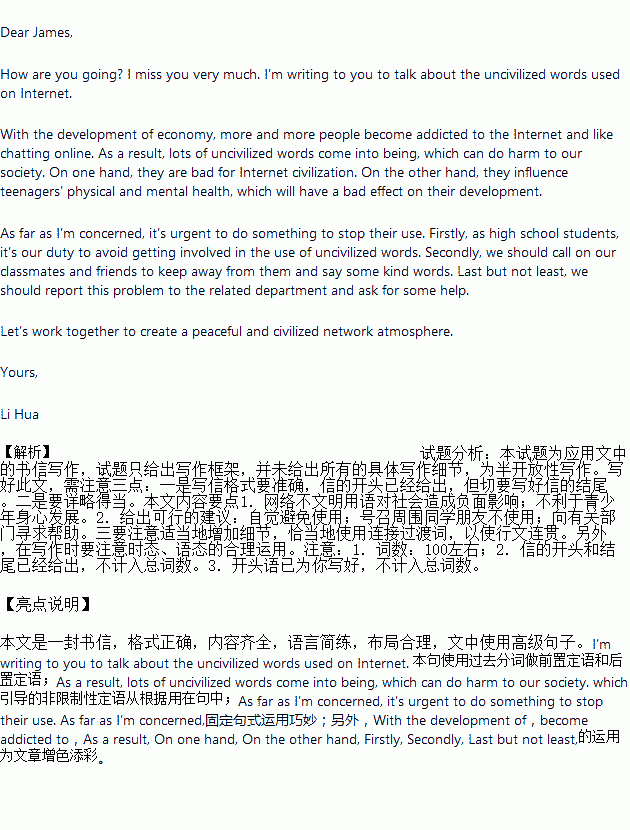题目内容
假定你是李华,最近你的美国网友James来信和你讨论“网络不文明用语”的话题。请你就此给他写封回信,内容要点如下:
1.网络不文明用语对社会造成负面影响;不利于青少年身心发展。
2.给出可行的建议:自觉避免使用;号召周围同学朋友不使用;向有关部门寻求帮助。
注意:1.词数:100左右;
2.信的开头和结尾已经给出,不计入总词数。
3.开头语已为你写好,不计入总词数。
提示词:不文明的 uncivilized
____________________________________________________________________________________________
____________________________________________________________________________________________
____________________________________________________________________________________________
____________________________________________________________________________________________
____________________________________________________________________________________________
____________________________________________________________________________________________
____________________________________________________________________________________________
__________________________________________________________________


 He made much more money than the farmer
He made much more money than the farmer In some Asian countries, eating with the left hand is considered impolite.
In some Asian countries, eating with the left hand is considered impolite.